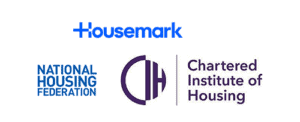Green Foundations: The Imperative of Environmental Planning in Social Housing
By Michael Dixon, Director of Operations, Clean Green Cleaning Services
In an era where environmental consciousness is not just valued but vital, the social housing sector stands at a critical juncture. Surprisingly, many local authorities and social housing providers find themselves without a comprehensive environmental plan. This oversight is not just a missed opportunity for sustainability; it’s a gap that significantly affects both communities and the planet. This article delves into the necessity of integrating environmental planning within the social housing sector, highlighting key areas for immediate action and long-term benefits.
The Current State of Environmental Planning in Social Housing: Despite the growing awareness around environmental issues, the integration of these considerations within the social housing sector remains inconsistent. Statistics and examples reveal a patchwork of efforts, where some providers excel in green initiatives, while others lag behind, lacking formal environmental strategies. This variance underscores a broader issue: the need for a unified approach to sustainability in social housing.
Importance of Sustainable Practices: The argument for sustainable practices in social housing extends beyond environmental preservation. Implementing green plans brings tangible benefits, including enhanced energy efficiency, significant waste reduction, and improved resident wellbeing. These practices not only contribute to a healthier planet but also to healthier living conditions, potentially leading to reduced living costs for residents—a critical factor in today’s economic climate.
Practical Steps and Strategies: Developing and implementing an environmental plan for social housing can seem daunting. However, practical steps can lead to meaningful change. Starting with energy audits, waste management programs, and sustainable building materials, providers can make significant strides. Moreover, the role of routine cleaning and maintenance cannot be overstated—using eco-friendly cleaning products and methods can greatly reduce a building’s environmental footprint.
Staff Motivation and the Cost of Living Crisis: The success of any environmental plan relies heavily on the people implementing it. In the context of the current cost of living crisis, motivating staff becomes both a challenge and a necessity. Engaging employees through training, clear communication, and incentives linked to sustainability goals can drive the successful adoption of green practices. When staff are motivated and understand their role in the bigger environmental picture, the efficiency and effectiveness of services improve, directly benefiting the social housing sector and its residents.
Conclusion: The call for environmental planning in the social housing sector is loud and clear. As we navigate the challenges of today and tomorrow, the focus must shift towards sustainability—not as an option but as a necessity. By embracing sustainable practices, developing practical strategies, and motivating staff, social housing providers can not only improve the quality of life for their residents but also contribute to the global effort against climate change. The time for action is now; let’s lay the green foundations for future generations.
Michael Dixon, Director of Operations, Clean Green Cleaning Services
Michael Dixon is the Director of Operations at Clean Green Cleaning Services, he has spearheaded numerous initiatives aimed at reducing environmental impact across England. Michael’s commitment to environmental stewardship is evident in Clean Green’s successful campaigns to significantly reduce plastic waste among its clients. His expertise and passion have been instrumental in developing and implementing a range of environmental initiatives, setting a benchmark for sustainable practices in the sector.
Click here for more information of Clean Green Cleaning Services.





